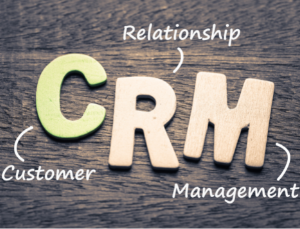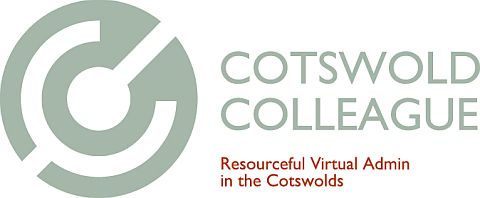Why do you need a CRM?
Running a small business often means you have numerous customers and lots of information to remember for each one.

When you first start out, using a spreadsheet is a good place to store client details but the more people you meet at networking, the more enquiries you receive and the more clients you start working with you, it soon becomes clear that something more robust is needed to help you keep track of it all.
You find you need more help with your business contacts, as well as names, phone numbers, and addresses, you also need to track the products people are interested in, what services they’ve purchased from your company, the company they work for, and background information.
Whilst a spreadsheet has unlimited space you might find you only recording the basic contact information of the customer, and you have scrawled paper notes, online diary reminders and tasks to keep track of the detail. A CRM, on the other hand, allows you to keep track of every detail of the customer’s information across the sales process all in one place.
Helping you be more Organised
So what does your current contact database look like? Is it multiple sheets of Excel, or notes in various apps? Or do you have a pile of business cards from networking that gather dust on your desk?
Keeping tabs on all the interactions, knowledge, feedback and potential for further business can mean too much to remember.
As businesses grow a CRM system can help you keep track of your communications and sales and make sure that you have the latest customer information to hand. It can also link with other systems such as mail marketing to build more streamlined processes and gives better understanding of your sales pipeline.
CRM is a Customer Relationship Management tool that helps you keep track of customers and your interactions with them. Easily accessible through an app from your desktop or mobile, you can store client information, their contact details, notes, previous and prospective purchases it can be an invaluable addition to your business toolbox. You can link contacts and companies, note who is the decision-maker and all their email addresses and telephone numbers – all in one place and at your fingertips!
Your contact list is very important but a CRM is more than just a list of connections. It can be used daily to keep track of your sales and marketing activities.
Every time a potential customer makes contact it’s a business opportunity. Whether they are asking about prices, downloading a resource you have shared, or following up about a product or services they’ve bought or are interested in, recording the interaction is valuable to the growth of your business.
Gathering and using data is essential to business development as well as your customer service. It can provide useful insights as to where your customers find out about you, what they purchase and how long the journey takes – all handy to use in your marketing strategy.
Whether you’re working on lead generation, have a mail campaign or are looking to better manage your sales pipeline, a current and accurate database of your customers is a valuable asset to your business.
Supporting your Growing Business
As your business grows and you bring a team on board, sharing information is a necessity. A CRM can help you keep track of all your customer interactions between members of your team. You can add notes & call details to a client keep the trail of emails and schedule tasks for members of your team to follow up. You can easily see what other people in your team have talked about and refresh yourself on what to say before emailing or calling a client.
How can you use a CRM?
As your data in your CRM grows, there are lots of ways you can use the information. The data can be segmented into leads, opportunities, potential clients and clients as they travel through your sales process.
- Send a newsletter with your latest updates or offers – CRM systems can integrate with mail marketing services such as Mailchimp.
- You can send a welcome card to new customers, or Christmas cards to loyal clients.
- Add diary dates for reminders for contact clients to nudge them to the next stage of your training or renew an expiring certificate.
- Add tasks to set reminders to email or call a potential client to keep the sales process moving.
- Use the company information to connect on your social media accounts so you can keep in front of mind.
- Follow up with previous clients to let them know about new products or special promotions.
- Record business cards for network connections and potential customers
Make the most of using your database
A CRM system is designed to help you understand your contacts better, and then put that knowledge to work.
Repeat business often comes through knowing your customers – who they are, what they have previously been interested in and went on to buy from you. Knowing who and what brings you the most income can increase your chances of cross-selling or up-selling.
Using a CRM system can provide the detail to you help focus your marketing, and whilst it doesn’t manage customer retention by itself, it will provide you with the tools to help you manage the activities around customer engagement.
With the help of CRM software, you can gather and manage information on your customers and also manage activities around customer engagement.
Getting started with a CRM
If you don’t have an effective CRM system right now there are free starter plans on many of the CRM systems available. As your customer base grows the paid premium plans come with additional features of tracking reports and integrations.
If you are unsure whether a CRM could be of benefit to your business, or if you need help maintaining and making the most of one, get in touch and let us get your CRM data management working effectively for you.

